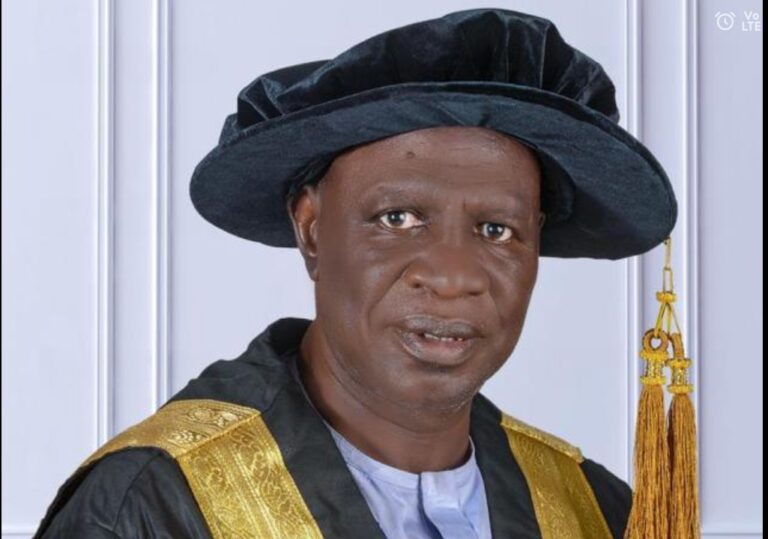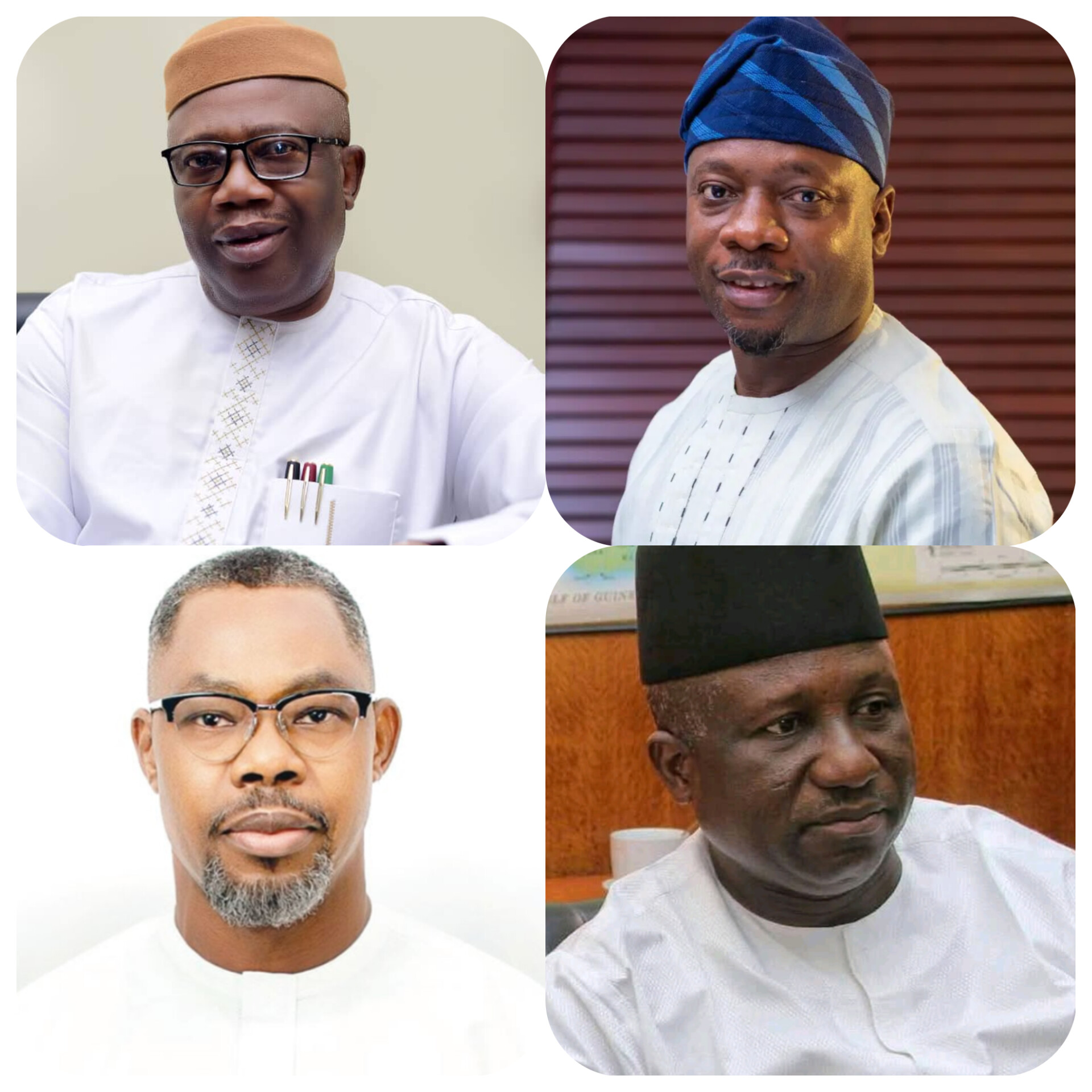Salamatu-WOFAN on Carbon Financing: Turning Adversity into Prosperity By Prof. M.K. Othman

Salamatu-WOFAN on Carbon Financing: Turning Adversity into Prosperity
By
Prof. M.K. Othman
This is a follow-up to my article published on August 20th, 2025, with a slightly different title, “Salamatu-WOFAN on Climate Change: Turning Adversity into Prosperity,” featured in this column. WOFAN, under the ICON 2 project funded by the Mastercard Foundation, organized a high-level training workshop for selected key stakeholders at the Hyatt Place Hotel on Whitechapel Road, East London, United Kingdom, from 18th to 21st November 2025. The training was conducted by Prospects Development Services, a well-regarded UK-based capacity-building and educational consultancy firm, proudly owned by Nigerian Dr. Bayode T. Hambolu.
The stakeholders from the private and public sectors in Nigeria, China, the UK, and India included academia- and university-based experts, legal and financial specialists, agriculturalists, interns, and a leading media expert. The theme of the training was “Strategic Leadership in Regenerative Agriculture and Positioning for Carbon Credit and Financing.”
The team of stakeholders was carefully chosen to address the complex needs of the carbon market and financing. The researchers are responsible for providing the essential technologies (smart agricultural practices) to reduce carbon emissions, combat the effects of climate change, and enhance resilience and adaptation. Legal experts will develop the legal and policy framework needed for the market to succeed, while financial experts will create methods for buying and selling carbon credits. Media specialists will promote awareness and educate the public about the availability of the carbon market and its potential to help farmers earn extra income as bonuses. They will also aim to improve farmers’ productivity and profitability by adopting smart agricultural practices. The interns are to study the complexity of the carbon market to become experts and facilitators of carbon trade, provide the necessary support to the public, and become future experts in the carbon market. What is the carbon market and how does it work?
Carbon market is a hybrid marketing system – virtual and physical; carbon markets are trading systems in which carbon credits are sold and bought. Companies or individuals can use carbon markets to offset their greenhouse gas emissions by purchasing carbon credits from entities that reduce or remove greenhouse gas emissions. Farmers can reduce or eliminate greenhouse gas emissions by adopting climate-smart agricultural (CSA) practices, which can also increase their productivity and profit margins. Adoption of CSA practices can generate carbon offsets through carbon dioxide sequestration, resulting in carbon credits that are valued in US dollars.
One tradable carbon credit equals one tonne of carbon dioxide or the equivalent amount of a different greenhouse gas reduced, sequestered, or avoided. When a credit is used to reduce, sequester, or avoid emissions, it becomes an offset and is no longer tradable.
Climate change is real, and its effects have no borders, just as wind naturally blows in all directions. However, the leading causes of climate change are greenhouse gas emissions and poor agricultural practices, which can be controlled or regulated. Developed countries are the major culprits in greenhouse gas emissions, driven by their heavy industries and technological advancement. For these countries to be considered “developed countries,” they cannot forgo their activities to lose their status and are thus ready to pay for carbon credits. In contrast, citizens of developing nations, who remain customers of the high technologies produced by developed countries, may not even benefit from reductions in carbon footprints, as they rarely engage in practices that mitigate greenhouse gas emissions. It is based on this premise that WOFAN, under the ICON 2 project with financial support from the MasterCard Foundation, organized two high-level workshops in France and the United Kingdom, and key stakeholders’ interaction in Nigeria, from July to November 2025.
The UK workshop focused on strengthening Participants’ understanding of carbon markets, climate-smart agriculture (CSA), and how WOFAN can position itself to generate certified carbon credits using international best practice and the emerging Nigerian Carbon Market framework.
At the workshop, stakeholders identified WOFAN to. be a champion and advocate of climate change resilience and adaptation in Nigeria, and thus, its strengths were identified: an extensive network of large farmers across many states, a functional extension system, strong digital tools, extensive experience, and access to improved or climate-smart agricultural technologies such as regenerative agriculture, compost, and tree planting.
Similarly, additional gaps requiring attention for WOFAN to succeed in empowering farmers to be involved in carbon market were also identified: lack of baseline carbon data (such as soil carbon, methane profile, water use, and farming practices), enforcement of farmer compliance, negotiation skills in the carbon market to protect farmers’ interests when working with developers, verifiers, and buyers of carbon credits, and other technical skill gaps.
A few case studies of efforts and success stories made by organizations and countries across the globe in establishing carbon markets and financing were discussed and analyzed. The Green Hydrogen – DRI-Steel Project, Stegra, Sweden, was among the case studies. The project objective was to develop a renewable, near-zero-emissions iron and steel plant. The project started in 2022, was validated in 2023, was in the developmental phase from 2023 to 2024, and is currently being executed through 2026. The financing model comprises a 4.2 billion Euro loan, 2.1 billion Euro in equity, and 350 million Euro in public grants. They will produce 2.5 million metric tons of steel per year, create over 5,000 jobs, and achieve a 95% reduction in carbon emissions.
Another case study was “Valuing the forest,” a global capital coalition project. The goal is to provide a worldwide framework to measure, value, and report the natural carbon capital within the forestry sector, enabling the creation of natural capital as an asset class and nature-linked financial instruments. The stakeholders involved in this project included 18 forestry companies covering 22 million hectares, as well as small and medium-sized enterprises. A financing model comprises a grant from the Global Secretariat of the Taskforce for Nature-Related Financial Disclosures (TNFD), contributions from each participating forest owner through the International Sustainable Forestry Coalition, and other sources. Where are we in Nigeria? Nigeria, with over 30 million hectares of forested area, can make a case for earning carbon credits through forestry conservation and protection. What of institutions like Ahmadu Bello University Zaria that have over 30,000 actively growing trees spread over three thousand hectares? Nigeria must wake up to take advantage of this innovation – the carbon market and financing.
The carbon market and financing are serious efforts that can address climate change effects and help farmers earn income. As I mentioned in my last article, farmers in other countries are already profiting from carbon credit sales. In 2023, farmers in Ghana earned $4.8 million by reducing nearly 1 million tons of emissions caused by deforestation and forest degradation. In Kenya, the Western Kenya Agricultural Carbon Project (Vi Agroforestry) combines CDM and VCS, involving over 60,000 farmers across 30 intermediary communities. Participants typically earn $200–$300 per half hectare over a 10-year contract, supported by county extension services. Imagine a small holder farmer in Nigeria earning $400 per hectare, about 640,000 Naira, from carbon credits alone, in addition to their farm profits. Elon Musk’s Tesla earned a record $2.8 billion in 2024 from trading regulatory carbon credits.
While strongly thumping up WOFAN under the indefatigable leadership of Dr. Salamatu Garba and the Technical Board Chairman, Prof. Sani Miko, for championing the establishment of the carbon market and financing in Nigeria, turning adversity into prosperity, I urge the National Council of Climate Change (NCCC) to double its efforts to provide a framework for climate action. As of today, Nigeria has no framework for monitoring, reporting, and verification (MRV), a prerequisite for requesting payment of carbon credits. NCCC, the only agency empowered by the Nigeria Climate Change Act of 2021 to create a national climate change action plan, is responsible for establishing MRV and public awareness programs on climate change. What is happening, NCCC? The ball is in your court, the world is moving fast on climate change, and Nigeria must wake up. All eyes are on you, NCCC, especially after Brazil COP30.



